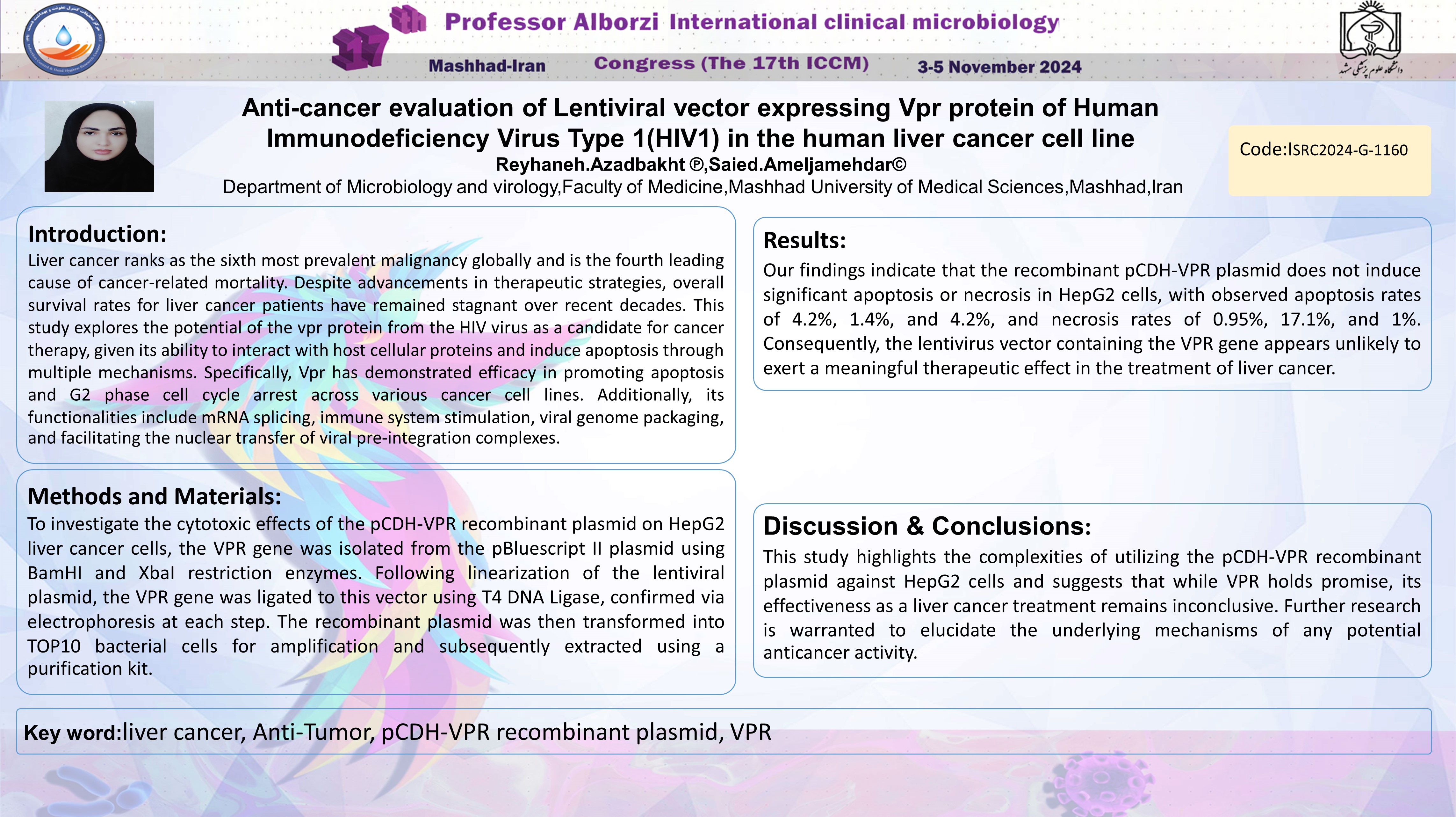بررسی اثر ضدسرطانی وکتور لنتی ویروس بیان کننده پروتئین Vpr ویروس نقص ایمنی انسانی نوع ۱ (HIV-1) در رده سلولی سرطان کبد
کد: G-1160
نویسندگان: سعید عامل جامه دار ©, ریحانه آزادبخت ℗
زمان بندی: زمان بندی نشده!
دانلود: دانلود پوستر
خلاصه مقاله:
خلاصه مقاله
Liver cancer ranks as the sixth most prevalent malignancy globally and is the fourth leading cause of cancer-related mortality. Despite advancements in therapeutic strategies, overall survival rates for liver cancer patients have remained stagnant over recent decades. This study explores the potential of the vpr protein from the HIV virus as a candidate for cancer therapy, given its ability to interact with host cellular proteins and induce apoptosis through multiple mechanisms. Specifically, Vpr has demonstrated efficacy in promoting apoptosis and G2 phase cell cycle arrest across various cancer cell lines. Additionally, its functionalities include mRNA splicing, immune system stimulation, viral genome packaging, and facilitating the nuclear transfer of viral pre-integration complexes. To investigate the cytotoxic effects of the pCDH-VPR recombinant plasmid on HepG2 liver cancer cells, the VPR gene was isolated from the pBluescript II plasmid using BamHI and XbaI restriction enzymes. Following linearization of the lentiviral plasmid, the VPR gene was ligated to this vector using T4 DNA Ligase, confirmed via electrophoresis at each step. The recombinant plasmid was then transformed into TOP10 bacterial cells for amplification and subsequently extracted using a purification kit. Our findings indicate that the recombinant pCDH-VPR plasmid does not induce significant apoptosis or necrosis in HepG2 cells, with observed apoptosis rates of 4.2%, 1.4%, and 4.2%, and necrosis rates of 0.95%, 17.1%, and 1%. Consequently, the lentivirus vector containing the VPR gene appears unlikely to exert a meaningful therapeutic effect in the treatment of liver cancer, although further research is warranted to elucidate the underlying mechanisms of any potential anticancer activity. In conclusion, this study highlights the complexities of utilizing the pCDH-VPR recombinant plasmid against HepG2 cells and suggests that while VPR holds promise, its effectiveness as a liver cancer treatment remains inconclusive.
کلمات کلیدی
liver cancer, Anti-Tumor, pCDH-VPR recombinant plasmid, VPR
